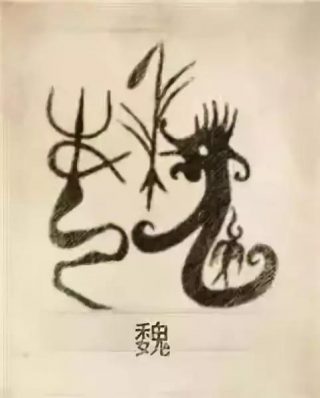The Wei(wèi)surname, a name that carries millennia of history and culture, holds a significant place in the tapestry of Chinese surnames. Originating from the Western Zhou Dynasty, the Wei surname has not only witnessed the evolution of Chinese history but has also left an indelible mark on the development of Chinese civilization.

Ⅰ、Origins and Early Development
1. The Gui Origin
The Wei surname can trace its roots back to the ancient Gui tribe. During the Xia and Shang dynasties, a branch of the Gui tribe established the Wei state in what is now Xingping, Shaanxi. After the state was conquered at the end of the Shang Dynasty, its descendants adopted the name of their former state, forming the earliest group of the Wei surname.
2. The Ji Origin
The primary origin of the Wei surname is linked to Bi Gonggao, the fifteenth son of King Wen of Zhou. His grandson, Bi Wan, was granted the fief of Wei (modern-day Ruicheng, Shanxi) by Duke Xian of Jin for his merits. His descendants took the name of their fief, forming the core branch of the Wei surname.
3. The Mi Origin
During the Warring States period, Wei Ran, the prime minister of Qin, originally bore the Mi surname (the royal family of Chu). He later changed his surname to Wei, and his family's political influence in Qin helped spread the Wei surname.
4. Ethnic Integration
Historically, several ethnic minorities adopted the Wei surname. For example, Wang Yuanshou, a Di ethnic leader during the Northern and Southern Dynasties, changed his surname to Wei. Additionally, ethnic groups such as the Manchu, Wa, and Oroqen have also adopted the Wei surname through sinicization.
Ⅱ、Historical Figures and Their Contributions
1. Ancient Figures
Wei Wuji (Warring States Period): Known as Lord Xinling, one of the Four Lords of the Warring States, famous for his heroic act of "stealing the tally to save Zhao," embodying the spirit of chivalry.
Wei Zheng (Tang Dynasty): A statesman and literary figure, known for his governance philosophy of "listening to both sides to achieve clarity." His "Ten Admonitions to the Emperor Taizong" became a classic in both politics and literature.
Wei Yuan (Qing Dynasty): A thinker who advocated "learning from the advanced techniques of the barbarians to control them." His work "Illustrated Treatise on the Maritime Kingdoms" spurred modern intellectual enlightenment, earning him the title of "the first to open his eyes to the world."
2. Modern Figures
Wei Wei: An author whose work "Who Are the Most Lovable People?" set against the backdrop of the Korean War, became a model of patriotic literature.
Wei Song: An internationally renowned tenor who has starred in operas like "Turandot," promoting Chinese vocal arts on the global stage.
Ⅲ、Cultural Significance and Family Heritage
1.Political and Intellectual Legacy
The Wei surname has made significant contributions to political systems and governance philosophies. For instance, Wei Zheng's culture of remonstrance became a model of Confucian political ethics, while Wei Yuan's reformist ideas opened new horizons for modern China.
2.Literary and Artistic Achievements
From Wei Zheng's historical essays in the Tang Dynasty to Wei Wei's reportage in modern times, the Wei surname has consistently reflected realism and national sentiment in literary creation. In the realm of music, Wei Song's operatic art showcases the fusion of Chinese and Western cultures.
3.Family Traditions and Social Cohesion
Ancestral Halls and Genealogies: The Wei family maintains blood ties through ancestral worship and genealogy compilation. For example, genealogies preserved in Henan and Sichuan detail migration histories and family norms.
Geographical Distribution: Today, the Wei surname is densely populated in northern regions like Henan and Sichuan, with a trend of spreading southward, forming unique regional cultural characteristics.
Ⅳ、Social Impact and Contemporary Value
1.Promoting Multicultural Integration
The historical adoption of the Wei surname by ethnic minorities and its spread across regions (e.g., Southeast Asia, North America) exemplify the exchange of Chinese culture with the outside world.
2.Modern Implications of Spiritual Symbols
Historical figures like Wei Zheng's spirit of direct remonstrance and Wei Yuan's open-minded thinking offer valuable lessons for contemporary governance and cultural confidence in the context of globalization.
3.Art and Education Legacy
Modern artists like Wei Song promote Chinese culture on international stages while contributing to vocal education, nurturing new generations and reflecting the continuity of surname culture.
Ⅴ、Conclusion
The diverse origins and historical figures of the Wei surname illustrate the inclusive cultural traits of Chinese surnames. From the Gui tribe to the Warring States lords, from models of remonstrance to modern enlighteners, the Wei surname has always been closely linked to the fate of the nation. Its family systems and spiritual heritage are not only integral to Chinese civilization but also provide cultural identity and innovative momentum for modern society.